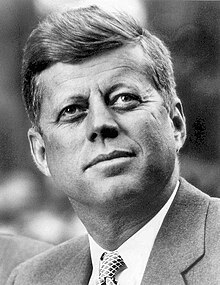White ethnic
This article needs additional citations for verification. (June 2011) |

White ethnic is a term used to refer to White Americans who are not Old Stock or White Anglo-Saxon Protestant.[1] They consist of a number of distinct groups and make up approximately 9.4% of the United States population.[2] The term usually refers to the descendants of immigrants from Southern, Central and Eastern Europe, Ireland, the Caucasus, and France/French-speaking Canada.[3][4]
In the 19th century, American industrial development caused millions of immigrants to emigrate from Europe to the United States. Many came to provide labor for the industrial growth of the Northeast and Midwest. A large number of Slavic, Magyar, Baltic, Celtic, and Mediterranean immigrants settled in the nation's growing cities.[5] This immigration wave continued until 1924 when Congress enacted the Johnson-Reed Act, which restricted immigration as a whole, and from Southern and Eastern European countries in particular. Additionally, the onset of the Great Depression in the 1930s acted as a deterrent to further immigration to the United States from Europe.
Separated from the ruling class by blood, religion, and economic circumstances, white ethnics retained a strong and distinct sense of identity. During the early 20th century, many white ethnics were relegated to menial or unskilled labor. They were often subject to ethnic discrimination and xenophobia and were lampooned with stereotypes. In contrast to the mostly Protestant Anglo-Saxon elite, white ethnics tend to practice Roman Catholicism,[6] Eastern Orthodox Christianity, Islam, or Judaism. These cultural and religious differences helped them retain a strong and separate identity from the rest of America.[7]
In the 1950s and 1960s, suburbanization caused many young ethnics to leave the city and settle in the nation's burgeoning suburbs with the hope of rising into a higher economic class. At the same time, white ethnics became more involved in American political life and began to challenge the Anglo-Saxon ruling class for greater political power and civil rights.[8] The election of John F. Kennedy as President in 1960 was the first time that a white ethnic (Irish-Catholic) was elected President. However, it was not the first time that a white ethnic was nominated for the Presidency. In the 1960s and 1970s, several ethnic organizations were more vocal in promoting white ethnic culture.
See also
- Ethnic origin
- Hyphenated American
- Symbolic ethnicity
- Other White, a census designation used in the United Kingdom
References
- ^ Marger, Martin N. (2008). Race and Ethnic Relations: American and Global Perspectives (8 ed.). Cengage Learning. p. 282. ISBN 0-495-50436-X. "Religion is the most critical factor in separating white ethnics in American society. As Catholics and secondarily Jews ... they were immediately set apart from the Protestant majority at the time of their entrance and given a strongly negative reception."
- ^ Marger, Martin N. (2008). Race and Ethnic Relations: American and Global Perspectives (8 ed.). Cengage Learning. p. 281. ISBN 0-495-50436-X.
- ^ "Overview of Race and Hispanic Origin: 2010 Census Briefs" (PDF). Census.gov. Retrieved 19 August 2017.
- ^ Pacyga, Dominic A. (May 1997). "Catholics, Race, and the American City". H-Net Reviews. Retrieved 16 December 2009.
- ^ Byrne, Julie. "Roman Catholics and Immigration in Nineteenth-Century America". National Humanities Center. Retrieved 13 July 2016.
- ^ "AN ANTI-CATHOLIC LAW'S TROUBLING LEGACY". Catholic League. Retrieved 13 July 2016.
- ^ Greeley, Andrew (1 July 1971). "Why Can't They Be Like Us: America's White Ethnic Groups". Commentary. Retrieved 1 March 2017.
- ^ Greenblatt, Alan. "The End Of WASP-Dominated Politics". npr.org. Retrieved 14 July 2016.
- Use dmy dates from June 2011
- Armenian-American culture
- Azerbaijani-American culture
- Catholicism in the United States
- Eastern Europeans in the United States
- Eastern Orthodoxy in the United States
- Catholic Church in the United States
- European-American society
- French-American culture
- Greek-American culture
- Greek-American history
- History of immigration to the United States
- History of racism in the United States
- Hungarian-American culture
- Italian-American culture
- Italian-American history
- Irish-American culture
- Irish-American history
- Jews and Judaism in the United States
- Lithuanian-American culture
- Polish-American culture
- Portuguese-American culture
- Romanian-American culture
- Russian-American culture
- Slavic-American society
- Spanish-American culture
- Urban culture
- White American culture
- White Americans
- White American working class
- Working-class culture in the United States
- Xenophobia
